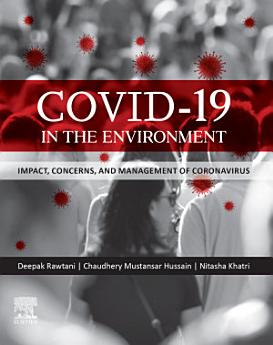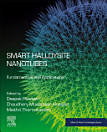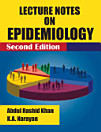COVID-19 in the Environment: Impact, Concerns, and Management of Coronavirus
About this ebook
About the author
Deepak Rawtani, M.E., PhD, Chartered Engineer, has over 21 years of extensive research experience spanning private and government organizations. He is an accomplished researcher with a focus on molecular medicine, discovery biology, and nanobiotechnology. His career includes roles at the Industrial Toxicology Research Centre, Lucknow; USV Limited, Mumbai; and Torrent Research Centre, Gandhinagar. His primary research areas include forensic nanobiotechnology, with a particular emphasis on DNA–nanoparticle interactions and the functionalization of halloysite nanotubes for applications such as enzyme immobilization, drug delivery, and environmental remediation. Dr. Rawtani has authored over 120 papers and seven books in nanotechnology and environmental science, published in AQ1, a reputable international journal and publisher. He has been recognized among the top 2% of researchers worldwide by Stanford University for 2021, 2022, and 2023. Additionally, he is a NABL-empaneled Technical Assessor (ISO/IEC 17025) with the Quality Council of India.
Nitasha Khatri holds a graduate degree in Life Sciences, with postgraduate and MPhil qualifications in Biotechnology. She earned her PhD in Environmental Science, specializing in water pollution and management. With over 18 years of experience primarily in the environmental sector, she currently serves at Gujarat Environment Management Institute (GEMI) as a Senior Scientific Officer and Head of the Laboratory. Her active contributions span various areas of ecology, including biomonitoring with macroinvertebrates, nanotechnology-assisted bioremediation, rural environment management, conservation efforts, and source apportionment studies involving water, air, and soil monitoring and assessment. Dr. Khatri has authored more than 40 research papers published in international peer-reviewed journals.
Chaudhery Mustansar Hussain is an adjunct professor and lab director in the Department of Chemistry & Environmental Sciences at the New Jersey Institute of Technology (NJIT), United States. His research is focused on sustainability, nanotechnology & advanced materials, environmental management, analytical chemistry, and other various industries. Dr. Hussain is the author of numerous papers in peer-reviewed journals as well as a prolific author and editor of several books, including scientific monographs and handbooks in his research areas. He has published with ELSEVIER, American Chemical Society, Royal Society of Chemistry, John Wiley & Sons, CRC Press, and Springer.




